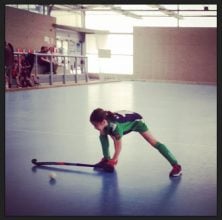
The weekly schedule of a child is very tight, sometimes even more so than the adults around them: school, extracurriculars, homework…but we should also be setting aside some time for physical activity. Practicing any sport gives them alternative and complementary learning to what they receive at school: camaraderie, integrity, effort, persistence, discipline, mental and physical health…are you really willing to waste this opportunity?
Your mission should be to start and encourage them to enter an educational world of childhood sports without having to overcome external pressures, unrealistic expectations, criticisms, and demands that end up turning the sport into a dark world for the child.
We should always reinforce the good attitude of athletes whether it is during a practice or game (effort, good sportsmanship, following the coach’s instructions). Keeping the results in the background, treating wins and losses the same, and remembering that they are two heads of the same coin.
Our children are little creatures that are forming their personalities. Value the person, not the athlete. Let them see that their ”I” does not depend on the results of competitions or games, but rather how they carry themselves through life. Support them emotionally when things don’t go the way they wanted by reinforcing other parallel behaviors.
Direct your focus toward their own progress by avoiding both positive and negative comparisons to children their own age. Showing them statistics, ratings, comments…that’s not your job.
Do not forget, that before anything, you are their parents, their role models. Make sure that your child is proud of you:
- Accept the role of the coach. They are the professional on the field and it could be counterproductive to interfere with their work.
- Speak positively and stop being critical. Disapproving of their teammates, making inappropriate gestures, yelling comments during a game, getting mad about a bad call or play… is this the image that you want them to see of you?
- Share the hobby. Make them see that you will be there right next to them at every competition, like a little party or cheering section. It is a time for fun, socializing, and sharing a good time together… and at home, it can be helpful to take time to read, talk about, and watch some games of their favorite sports. Many athletes are great examples and role models in real life.
Remember that childhood sports have many benefits
- Before a competition, you must support your child by focusing your conversations on the playful aspects, the importance of effort, good sportsmanship, and good manners. Childhood sports are not just for the competition.
- During the game, you should encourage and unconditionally support the players for their performance, respecting their opponents and the referees, and taking their mistakes in stride instead of dwelling on them.
- After, congratulate and support your child regardless of the outcome and listen to and empathize with them. Focus on the positive things they have done, instead of the negative (it is the coach’s job to correct them) and if possible, do it all again and have them share a fun moment with their opponents after the game.
Learn More:
- The Best Way to Help Your Child Face Sports Competitions
- Compete to Grow: Learning Through Competition
- Mathematics, the Same as Sports
- Mathematics: Training for Life
- The Importance of Sports to Learn and Strengthen Values
- Master Math! 10 Reasons to Help Your Child do Just That - 05/28/2020
- Why Do Children Believe That Things Happen? - 05/25/2020
- Is Self-Control Linked to Health? - 05/19/2020







